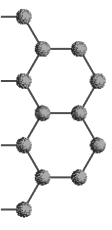ABSTRACT
Since the original publication on the effects of thermal cycling on metallic glasses [1], there have been several studies showing a wide range of property changes. There have also been studies of structural changes. It is already clear that thermal cycling is important, in that it can induce significant improvements in macroscopic mechanical properties such as plasticity, fatigue resistance and impact toughness [2]. We review these (and other) results, sometimes apparently conflicting, we attempt to assess what is now understood, and we identify priorities for the immediate next stages of research.
[1] SV Ketov, YH Sun, S Nachum, Z Lu, A Checchi, AR Beraldin, HY Bai, WH Wang, DV Louzguine-Luzgin, MA Carpenter, AL Greer, Rejuvenation of metallic glasses by non-affine thermal strain, Nature 524 (2015) 200–203.
[2] D Grell, F Dabrock, E Kerscher, Cyclic cryogenic pretreatments influencing the mechanical properties of a bulk glassy Zr‐based alloy, Fatigue Fract. Eng. Mater. Struct. 41 (2018) 1330–1343.
BIOGRAPHY
Prof Lindsay Greer is a Professor of Materials Sciences and Head of School of the Physical Sciences at University of Cambridge, UK.
He is the leader of Microstructural Kinetics research group; and focuses on: metallic glasses (principally their wide range of structure and their mechanical properties), nucleation in condensed systems, chalcogenide phase-change materials for computer memory, grain refinement (experimental studies and modelling) in solidification of alloys.
Date & Time
Venue
Chair

